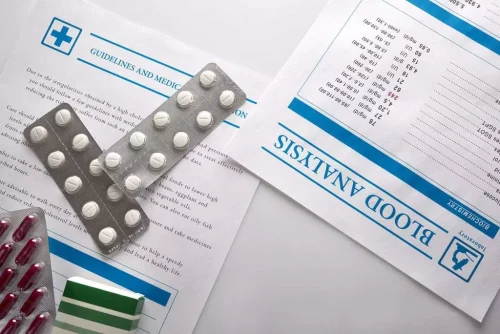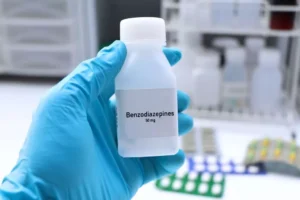Chưa có sản phẩm trong giỏ hàng.
Sober living
Dry January’s health benefits and how to take an alcohol break : Life Kit : NPR

In order to quit drinking, you may need proper medical support to detox safely. Deciding to quit alcohol is a significant and commendable step towards improving your overall health and well-being. Whether you’ve noticed you’re showing signs of alcohol addiction or you’re simply seeking a healthier lifestyle, understanding how to quit alcohol is essential. This guide aims to provide actionable advice while addressing common concerns related to quitting drinking.
- Dr. Streem suggests starting with the World Health Organization’s Alcohol Use Disorders Identification Test (AUDIT).
- It’s crucial to consult a healthcare professional for guidance and potentially seek medically supervised detoxification in severe cases.
- It might even be for a challenge, to buddy someone else who is giving up alcohol, or to raise money for charity.
- Although it can help some people fall asleep quickly, it can disrupt your sleep patterns and stop you sleeping deeply.
- But if you experience these symptoms for more than about five days after stopping or find them particularly troublesome, your GP will be able to offer some advice.
- By cutting alcohol out of your life completely, you may notice a number of improvements to the way you look and feel.
What does drinking alcohol do to your body?

Which option is best for you depends on how much you’ve been drinking, how long you’ve had a problem, the stability of your living situation, and other health issues you may have. Tracking your alcohol intake helps create awareness around your drinking habits. For many, seeing patterns of when and why they drink can lead to breakthroughs. There are plenty of ways to track—some prefer old-school methods like marking days on a calendar, while others use cost-effective apps that provide valuable insights. A common reason people slip back into old drinking habits is the availability of alcohol at home. If alcohol is easily accessible, it’s tempting to reach for it during stress or boredom.
- Changing unhealthy behaviors such as smoking, overeating, or drinking too much can take a lot of effort, and you may not succeed with the first try.
- Encouragement from family, friends, and others you trust can be an invaluable source of strength as you make this change in your life.
- Some people with a long history of alcohol misuse may start to experience seizures, which peak around 10 hours then taper off and subside entirely within 2 or 3 days.
- If you’re living with alcohol use disorder, treatment at a medical rehabilitation facility is your best option.
- But it’s also one of the most important questions you’ll answer on your road to recovery.
Alcohol support services
Avoiding external triggers can be obvious and predictable. For example, keeping the home alcohol-free may prevent people from drinking. Avoiding social events that involve alcohol may also help someone overcome the urge to drink. Avoidance can be temporary, and people can return to social activities when they can better manage their urges. If you turn to alcohol to ease anxiety, try exercise as a healthy alternative. “Once you have a sense of how much you’re drinking, it’s helpful to track how many drinks you’re having per day,” says Witkiewitz.
- If you let your friends and family know you’re cutting down and it’s important to you, you could get support from them.
- According to the CDC, heavy drinking is defined as 15 or more drinks per week for men and 8 drinks or more per week for women (2).
- They can help people manage withdrawal symptoms and keep them on track to stop drinking.
- In particular, she’s committed to helping decrease stigma around mental health issues.
Practical tips on giving up alcohol
Your liver can start to heal, your risks of heart disease and cancer go down, and you may begin I drink every night am I an alcoholic to sleep better. If you feel comfortable doing so, discuss your challenges with your primary healthcare professional. Finding a therapist can also be a great starting point if you’re uncomfortable opening up to your healthcare professional.
Learn how to say, “No.”
Make a table like the one below, weighing the costs and benefits of drinking to the costs and benefits of quitting. Accountability is a game-changer for making lasting changes. Joining or forming a support group not only connects you with people on a similar journey but also creates a layer of responsibility. Sharing your goal with others keeps you on track and gives you a support system during moments of weakness. Many online communities, from fitness groups to sober communities, offer this accountability. Below, we’ve compiled six powerful strategies for anyone ready to take control of their drinking habits.


Make meetings a priority – Join a recovery support group, such as Alcoholics Anonymous (AA), and attend meetings regularly. Spending time with people who understand exactly what you’re going through can be very healing. You can also benefit from the shared experiences of the group members and learn what others have done to stay sober. Some people are able to stop drinking on their own or with the help of a 12-step program or other support group (see below for links). Others need medical supervision in order to withdraw from alcohol safely and comfortably.
- This guide has lots of practical tips on how you can stop drinking and the benefits you can expect.
- Crystal Raypole has previously worked as a writer and editor for GoodTherapy.
- Whether you’ve noticed you’re showing signs of alcohol addiction or you’re simply seeking a healthier lifestyle, understanding how to quit alcohol is essential.
- But that advice changes if you’re living with alcohol use disorder.
If a setback happens, get back on track as quickly as possible. Research shows that most people who drink heavily, even those with AUD, can cut back significantly or quit. Changing unhealthy behaviors such as smoking, overeating, or drinking too much can take a lot of effort, and you may not succeed with the first try.

